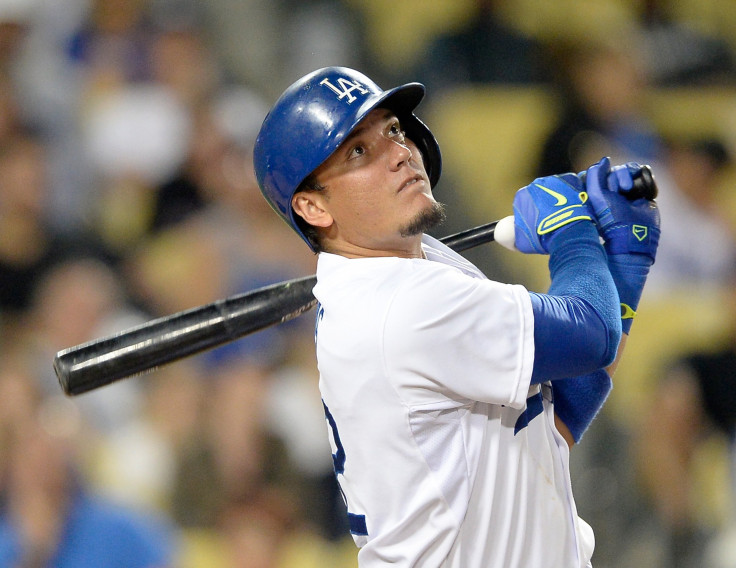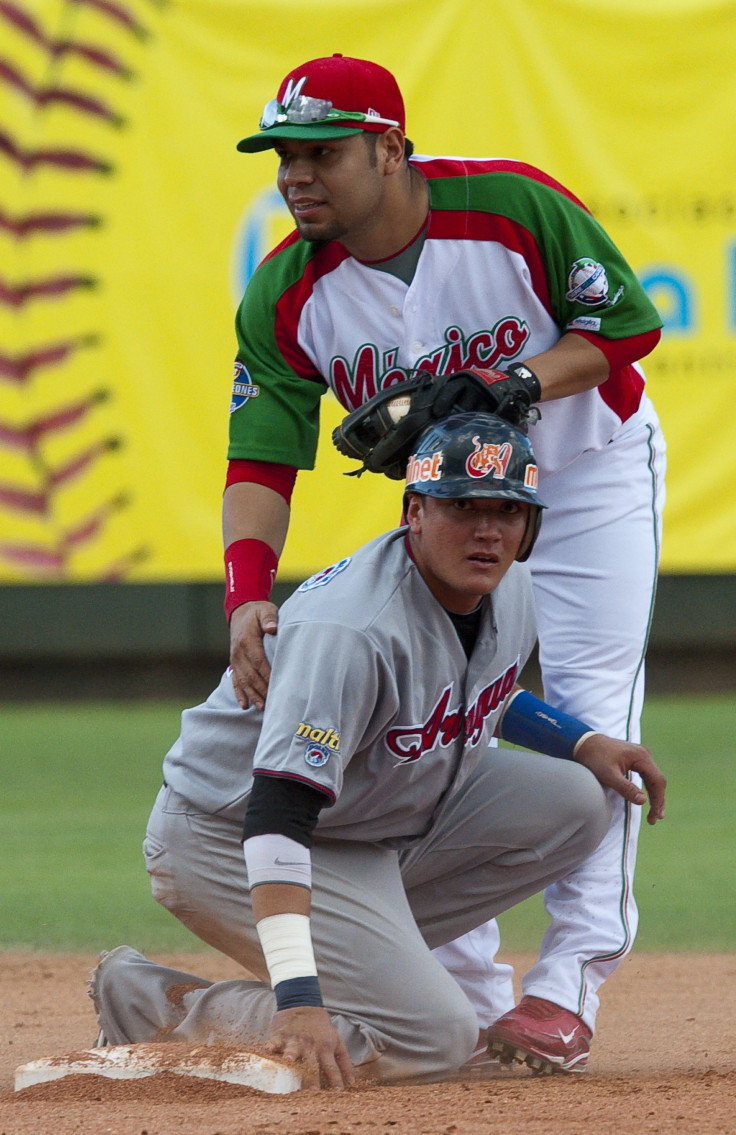
Los Angeles Dodgers rookie shortstop, Miguel Rojas, made his big league debut on June 6, 2014. Since that time he’s proven to be a formidable defensive shortstop for Los Angeles. Throughout the Dodgers season and post season, Rojas took over for all-star Hanley Ramirez at short late in close games for defensive purposes. Rumors are circling that Ramirez might not be back with the team next year; giving Rojas an opportunity to lock down the Dodgers starting shortstop position for the future. We sat down with the 24-year-old to discuss his journey to the big leagues, his family, and his heritage.
Latin Times: Where were you born and raised?
Miguel Rojas: In Caracas, Venezuela.
LT: What are some of the main cultural differences youve noticed between Venezuela and the United States?
MR: The United States is such a great country. We can be on the streets at night without it being dangerous. In Venezuela, you have to be careful because there is a lot of people doing wrong in the streets. For me, the baseball players living here in the United States, we are not just playing baseball; we are trying to teach the people of Venezuela that we can do this (be successful) and that we can put the name of Venezuela in the highest regard.
LT: How do you keep in touch with your family and your Venezuelan roots while living in the United States?
MR: I call my family every day, especially my Grandma and Granddad. This has been a routine for me since I first started in the minors and I’m going to keep doing it every day to make sure everything is okay. They have MLB TV and they also air the Dodgers games especially when we were in the playoffs. They are really proud and enjoy watching me play.
LT: I heard you got married earlier this year, congratulations. I know that your wife, Mariana was living in Caracas until the season started, but since then she has been here with you. How has she helped you this season?
MR: My wife Mariana has been great for me this year because this is the first year she has been here with me in the United States. She keeps me away from distractions. Your first year in the big leagues, there is a lot of media surrounding you and a lot of temptations. That’s been the biggest thing; she has been great for me.
LT: Do you plan on having kids, and if so, how and where do you plan on raising them?
MR: We do plan on having kids. We are trying to stay here in Los Angeles and get a house here. We are going to do whatever it takes to make sure our kids are born here and raised here but with Venezuelan family values.
LT: Earlier this year in Caracas, five people were killed during political protests that turned violent. I know that this occurred very close to where your family is. In addition, Venezuela is notorious for kidnapping major league baseball players and holding them for ransom. Does any of this concern you when you go back to Venezuela to play in the Winter Leagues?
MR: That stuff is pretty scary. All my family is there. I try not to think about it. I’m with God and he will provide insurance for my family and protect us from whatever happens. The good thing about us is we try and keep a low profile. We don’t try and let people think we’re millionaires just because we are playing in the big leagues. We are going to keep helping the people in the streets and the people around us and everything will be well.

LT: Who were some of your role models in baseball when you were growing up?
MR: Omar Vizquel. He was a great mentor. He was a great shortstop, defensively. He also showed everybody he could hit. He ended up with almost 3,000 hits in his career. That was great for me. I watched all of the things he did for the people in Venezuela on and off the field. I talked to him when we went to Detroit. I asked him for some advice. I asked him how to conduct myself on and off the field and he helped me. He’s been great for me.
LT: You are known for being a defensive specialist at shortstop and have an opportunity this Spring if the Dodgers do not re-sign Hanley Ramirez, to compete for that position on a permanent basis. How do you prepare yourself for such opportunities?
MR: I got called up for that reason, for my defense. I try and be ready for every opportunity they give me. During the season, I try and get here (Dodger Stadium) as earlier as possible and I take ground balls before everyone else gets here and takes batting practice. During the game, even if I’m on the bench, I imagine as if I’m playing shortstop. So in my mind, if they give me a ground ball, am I going to throw to first, or am I going to take a chance? I have to take control of the pressure and be myself. Don’t be afraid to make a mistake or an error. If they believe in me to be in that position (full time shortstop), I need to believe in myself.
LT: Is there any great Venezuelan restaurants here in Los Angeles you can recommend, and if so, what should I order?
MR: My wife is the best one in town. She cooks great Venezuelan food, but there is one in Beverly Hills called Coupa Café. It’s really good and really authentic Venezuelan food. Get the cachapa. It’s something you make with corn, it is round and filled with cheese and ham, it’s delicious.
© 2025 Latin Times. All rights reserved. Do not reproduce without permission.





